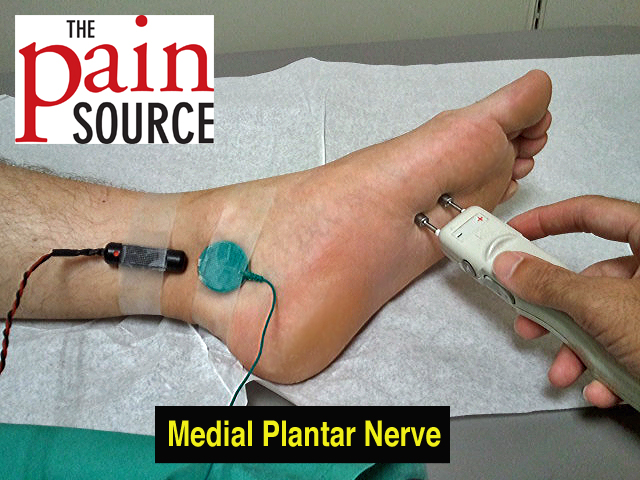
When the study is underway, the surface electrodes will at times transmit a tiny electrical current that you may feel as a twinge or spasm. Or the neurologist may insert needle electrodes at different sites depending on your symptoms. To prepare for the study, the neurologist or a technician places surface electrodes at various locations on your skin depending on where you're experiencing symptoms. You'll likely be asked to change into a hospital gown for the procedure and lie down on an examination table.

The nervous system specialist (neurologist) conducting the EMG will need to know if you have certain medical conditions. Don't apply lotions or creams before the exam. Take a shower or bath shortly before your exam in order to remove oils from your skin. If you are taking a medication called Mestinon (pyridostigmine), you should specifically ask if this medication should be discontinued for the examination. When you schedule your EMG, ask if you need to stop taking any prescription or over-the-counter medications before the exam. When muscles along the chest wall are examined with a needle electrode, there's a very small risk that it could cause air to leak into the area between the lungs and chest wall, causing a lung to collapse (pneumothorax). There's a small risk of bleeding, infection and nerve injury where a needle electrode is inserted. Watch this short video to learn more about what to expect.EMG is a low-risk procedure, and complications are rare. Each study is designed specifically for your symptoms so the length of the test can vary, but they are usually between 30-60 minutes. There are very few risks or side effects from these tests. Coumadin), if you have a pacemaker, or if you have hemophilia. Tell the doctor that is performing your test if you are taking a blood thinner (i.e. Take your regularly scheduled medications. You should bathe before the test and DO NOT apply any body lotion. To prepare for these tests, ask your referring physician for any special instructions. Nerve conduction studies measure how well and how fast the nerves can send electrical signals. EMG measures the electrical activity of muscles at rest and during contraction. This diagnostic test can help find the cause of pain, numbness/tingling, or weakness.

EMG/Nerve Conduction Studies are done to help diagnose injuries or diseases that damage muscles, nerves, or the junctions between the nerve and muscle.


 0 kommentar(er)
0 kommentar(er)
